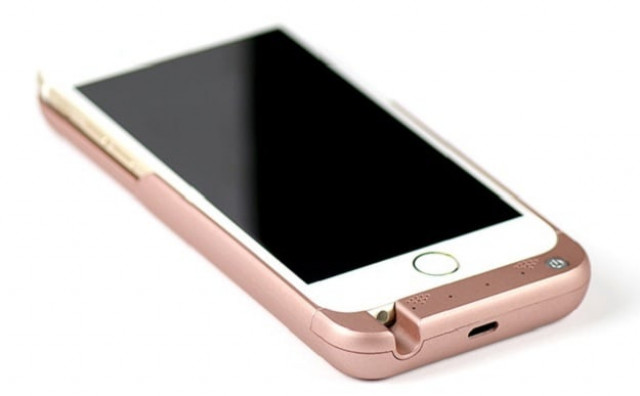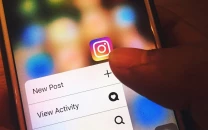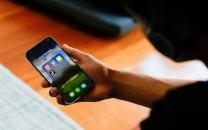A death in the family inspired an iPhone case that monitors your blood pressure
The case sports two radar sensors that detect tissue movement and blood flow

The case sports two radar sensors that detect tissue movement and blood flow. PHOTO: LUMIO LABS
To answer that question, Stanley co-founded Lumio Labs in Taiwan to come up with solutions for patients suffering from blood pressure-related conditions like his mother did. Stanley’s background involves managing clients, manufacturing, and logistics for mobile phone and tablet original equipment manufacturers (OEMs). Together with co-founder Jimmy Huang, a specialist in mobile development and radio frequency signal processing, they looked into tracking Pulse Wave Velocity (PWV) through a radar sensor.
PWV is used clinically to measure arterial stiffness, or the hardening of our arteries as we age. Monitoring PWV helps detect things like cardiovascular diseases and strokes.
US military swaps Samsung for iPhone
“We wanted to give people the power to measure and track blood pressure anywhere, so why not embed the sensor in an ultra slim iPhone case, so it can be with you everyday,” Stanley says. The result is AccuRate, an iPhone case that promises to measure your blood pressure, well, accurately by just resting on your wrist for 30 seconds.
Case study
The case sports two radar sensors that detect tissue movement and blood flow. The data they capture is processed by Lumio Labs’ algorithms. The accompanying app records the information and provides a history of your pressure and heart rate readings down to the day. It also allows your family members to keep an eye on your stats, which makes it useful for people with elderly relatives.
The case itself doesn’t look very remarkable, with the team clearly going for functionality over aesthetics. It adds a little bit of bulk to your iPhone but it’s very lightweight, so it shouldn’t get in your way too much.
I wondered why Lumio decided to go with a phone case instead of building a wearable or developing software to work with existing wearables. Stanley explains that a phone case is an easier product for users to adopt.
At this point, people carry a phone with them almost everywhere they go. It’s always on, connected, and available, so it’s ideal for what the startup wants to achieve. “When you drive away from home and realize five minutes later that you left your phone at home, over 90 percent [of people] will turn around to get it, but most won’t turn around for their Apple Watch or Fitbit,” he says.
 PHOTO: LUMIO LABS
PHOTO: LUMIO LABSMoreover, the team’s target market – people aged 40 and above – is one that’s harder to convince about getting a new wearable than about just changing phone cases.
The fact that the case is currently only available for iPhone 6-6S and their Plus siblings does somewhat limit the target audience.
Current wearables are also not up to the task of getting good enough readings yet, Stanley points out, especially when it comes to blood pressure and PWV.
Getting the word out
The team has launched an Indiegogo campaign, seeking to raise US$30,000. This will go toward clinical trials in Taiwan, with which Lumio can then go on to pursue approval by the Food and Drug Administration in the US.
The startup is targeting a global market of people living with hypertension. The World Health Organization says that more than one in five adults in the world have raised blood pressure, with related complications resulting in 9.4 million deaths every year. Lumio has set a goal of selling one million units per year.
Manufacturing will take place in Taiwan.
AccuRate is the company’s first product. Eventually, it wants to look at more related gizmos like a business card-sized blood pressure monitor and GPS-enabled bands for the elderly, for use in hospitals and care centers. Its team has experience in the consumer electronics market at companies like Nokia, Acer, and IBM, plus National Taiwan Normal University professor Wen-Jyi Hwang, a specialist in computer science and engineering.
Apple surpassed by Xiaomi, Huawei in China as iPhone market share falls
Lumio has been bootstrapping for the last four years, but it’s now looking for investors who are interested in the healthtech and vital signs market.
The team probably won’t have to wait long to find them. The smart healthcare device market is expected to be worth US$7.8 billion by 2020, according to market research firm ReportBuyer. Apple itself has filed a patent for an ECG (electrocardiographic) signal-tracking wearable, Quartz reported yesterday.
While there are plenty of mobile app-enabled blood pressure monitors out there, including Qardio and a Bluetooth monitor by European health and lifestyle hardware maker Withings, they still require you to strap a sensor around your arm or wrist. AccuRate stands out in that sense.
“I would say we don’t have a major competitor,” Stanley says. “What we want is to give one more choice for people who really want to know about their body anytime, anywhere.”
This article originally appeared on Tech in Asia.



















COMMENTS
Comments are moderated and generally will be posted if they are on-topic and not abusive.
For more information, please see our Comments FAQ